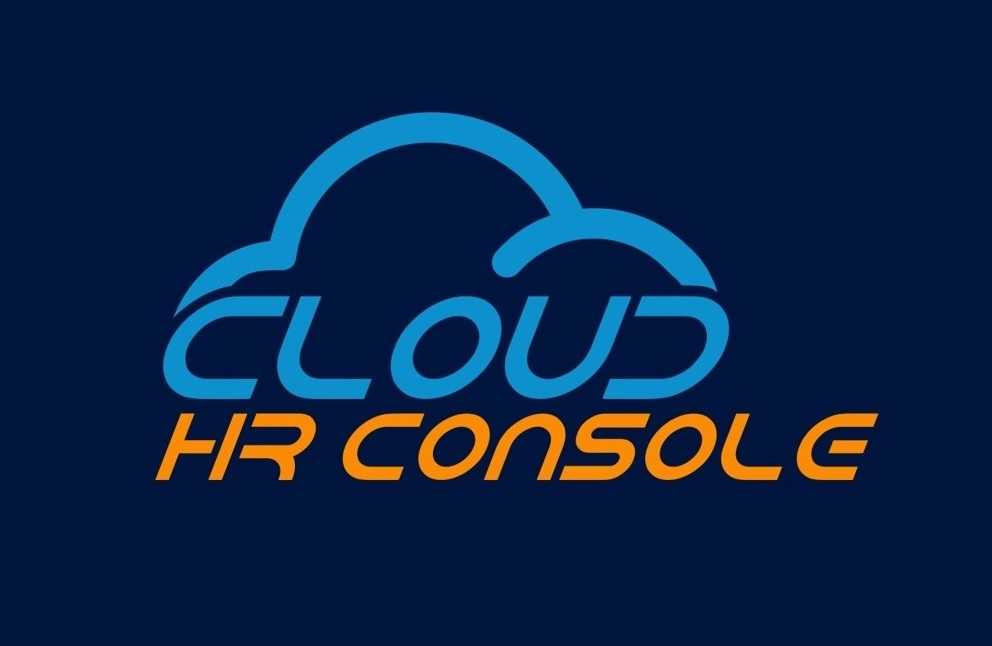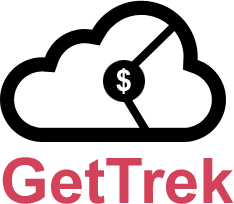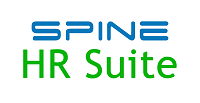Description

Cloud HR Console

Payroo Payroll
Comprehensive Overview: Cloud HR Console vs Payroo Payroll
Cloud HR Console and Payroo Payroll are solutions designed to assist businesses with their human resources and payroll needs, respectively. Below is an overview of each product based on their primary functions, target markets, market share, user base, and key differentiating factors.
Cloud HR Console
a) Primary Functions and Target Markets:
-
Primary Functions:
- Employee Management: Offers tools for managing employee data, maintaining records, and tracking performance.
- Attendance and Leave Management: Facilitates tracking of attendance, managing leave requests, and scheduling.
- Recruitment and Onboarding: Supports hiring processes, from application tracking to onboarding new hires effectively.
- Performance Management: Enables goal setting, performance reviews, and feedback gathering.
- Compliance and Reporting: Assists with maintaining compliance with HR regulations and generating necessary reports.
-
Target Markets:
- Small to Medium Enterprises (SMEs): Ideal for businesses looking to streamline their HR processes without the need for a large HR department.
- Enterprises with Distributed Workforce: Useful for organizations with employees across various locations needing centralized HR management.
b) Market Share and User Base:
- Cloud HR solutions generally cater to a broad range of industries, with a significant presence in tech-savvy organizations and rapidly growing businesses.
- While proprietary data on Cloud HR Console’s specific market share might not be readily available, HR software solutions are experiencing increased adoption as organizations seek digital transformation.
c) Key Differentiating Factors:
- User Interface and Experience: Known for providing a user-friendly interface, making it easy for HR professionals and employees alike to navigate.
- Customization and Scalability: Offers customizable features that can scale with the business needs.
- Integrations: Ability to integrate with other business software for a seamless workflow.
Payroo Payroll
a) Primary Functions and Target Markets:
-
Primary Functions:
- Payroll Processing: Automates payroll calculations, tax deductions, and disbursements.
- Compliance Management: Ensures adherence to local and national payroll regulations.
- Reporting and Analytics: Provides detailed payroll reports and analytics to aid in financial planning and auditing.
- Employee Self-Service Portal: Allows employees to access their payslips, update personal information, and view tax documents.
-
Target Markets:
- Small Businesses: Particularly those looking for a cost-effective and efficient payroll management solution.
- Payroll Service Providers: Suited for firms that manage payroll on behalf of other businesses.
b) Market Share and User Base:
- Payroo has established itself as a notable payroll solution in the UK, offering specialized support for UK payroll legislation.
- Its market share is significant among small to medium enterprises in the UK, though it faces competition from both larger, well-established payroll software and newer, more versatile solutions.
c) Key Differentiating Factors:
- Compliance Focus: Payroo is known for its robust compliance features, particularly around UK-specific payroll legislation.
- Simplicity and Cost-Effectiveness: Offers a straightforward and affordable solution compared to more complex enterprise payroll systems.
- Flexibility: Enables users to manage various payroll frequencies and employee classifications without much hassle.
Comparison and Conclusion
In comparing Cloud HR Console and Payroo Payroll, the following observations can be made:
- Functionality: Cloud HR Console covers a broader scope of HR functions beyond payroll, whereas Payroo focuses primarily on payroll processing.
- Target Audience: Cloud HR Console aims for more comprehensive HR management needs, while Payroo targets businesses primarily needing payroll solutions.
- Market Presence: Both cater mainly to SMEs, but Payroo has a more concentrated presence in the UK due to its compliance strengths.
- Differentiation: Cloud HR excels in providing a wider array of employee management tools, whereas Payroo's strengths lie in payroll processing and compliance within the UK.
These products suit different business needs, with Cloud HR Console appealing to firms requiring a holistic HR platform, and Payroo being beneficial for those wanting efficient and compliant payroll processing.
Contact Info

Year founded :
2017
Not Available
Not Available
India
http://www.linkedin.com/company/cloud-hr-console

Year founded :
Not Available
Not Available
Not Available
Not Available
Not Available
Feature Similarity Breakdown: Cloud HR Console, Payroo Payroll
To provide an analysis of Cloud HR Console and Payroo Payroll, we need to discuss their common features, differences in user interfaces, and unique features that differentiate them. However, it's important to note that specific feature sets can vary due to updates or changes by the respective companies.
a) Common Core Features
-
Employee Management:
- Both Cloud HR Console and Payroo Payroll typically offer employee management capabilities, allowing users to manage employee records, track personal information, and update employment details.
-
Payroll Processing:
- Payroll functionality is central to both platforms. They both facilitate calculating wages, handling deductions, generating payslips, and processing payments to employees.
-
Compliance Management:
- Both platforms provide compliance management tools to ensure that businesses adhere to relevant payroll and employment laws, such as tax regulations and labor laws.
-
Reporting:
- Reporting features in both systems allow users to generate various financial and employee reports, which can be used for analysis and decision-making.
-
Self-Service Portals:
- Most HR and payroll platforms, including these, offer a self-service portal for employees. This can include access to payslips, personal information updates, and leave requests.
b) User Interface Comparison
- Cloud HR Console:
- Typically designed with a focus on integration and a broader HR management experience, possibly featuring customizable dashboards. The interface might emphasize ease of use and streamlined processes to fit comprehensive HR needs.
- Payroo Payroll:
- Mainly focused on payroll functionalities. The interface might be more straightforward, with quick access to payroll processes. It may exhibit a simpler, more task-focused design to accommodate payroll administrators specifically.
c) Unique Features
-
Cloud HR Console:
- May include broader HR functionalities beyond payroll, such as recruitment management, performance appraisals, and training modules.
- Advanced integrations with other HR tools or third-party applications could be a highlight.
- More extensive analytics and data visualization options might be available for strategic HR planning.
-
Payroo Payroll:
- Might offer unique features focused on UK-specific payroll requirements, given its historical operations in the UK market.
- Potential emphasis on ease of payroll-related compliance reporting and streamlined submission processes specific to the UK HMRC requirements.
- Could provide specialized services or integrations for smaller businesses seeking a dedicated payroll solution.
In conclusion, while both Cloud HR Console and Payroo Payroll share common functionalities in payroll and employee management, each may cater to different needs within an organization through their unique features or user interface adjustments. Businesses should evaluate based on specific organizational requirements, whether looking for a comprehensive HR solution or a dedicated payroll processing system.
Features

Not Available

Not Available
Best Fit Use Cases: Cloud HR Console, Payroo Payroll
Cloud HR Console:
a) Best Fit Use Cases:
-
Small to Medium-sized Enterprises (SMEs): Cloud HR Console is ideal for SMEs that need a scalable HR management solution without extensive IT infrastructure. Companies with limited resources can benefit from its cost-effective, cloud-based nature.
-
Rapidly Growing Businesses: Businesses experiencing quick growth often face challenges in managing HR functions. Cloud HR Console offers flexibility and scalability, making it suitable for companies looking to streamline HR processes as they expand.
-
Remote and Distributed Teams: Organizations with remote or globally distributed teams may find the Cloud HR Console beneficial due to its cloud-based access, which enables HR staff and employees to manage and access HR functions from anywhere.
-
Project-based Businesses: Companies engaged in project-based work can utilize Cloud HR Console to manage project-specific hiring, time-tracking, and resource allocation efficiently.
b) Industry Verticals and Company Sizes:
-
Tech Startups and IT Firms: The technology sector, where rapid growth and agile responses are critical, can leverage Cloud HR Console for managing recruitment, onboarding, and employee engagement.
-
Healthcare and Non-profits: Industries with dedicated project-based or grant-funded models can use Cloud HR Console for streamlined HR management and regulatory compliance.
-
Retail and Hospitality: These sectors, which often have high employee turnover, can benefit from the streamlined onboarding and training processes offered by the Cloud HR Console.
Payroo Payroll:
b) Preferred Scenarios:
-
Small to Medium-sized Businesses: Payroo Payroll is well-suited for small and medium enterprises that require a straightforward, efficient payroll system without the complexities of larger software solutions.
-
Budget-conscious Companies: Businesses that need a cost-effective payroll solution without compromising on essential features often opt for Payroo Payroll due to its competitive pricing structure.
-
Companies with Simple Payroll Needs: Organizations with straightforward payroll requirements, such as those with few employees or uncomplicated wage structures, find Payroo Payroll an efficient option.
-
UK-based Businesses: Companies operating within the UK benefit significantly from Payroo Payroll's compliance with UK-specific payroll regulations and tax filings.
d) Industry Verticals and Company Sizes:
-
Local Services and Trades: Small service-oriented businesses, like local shops, restaurants, or tradespeople, can manage payroll efficiently with Payroo Payroll without the need for complex HR systems.
-
Educational Institutions: Small schools or institutions that require payroll management tailored to part-time or hourly staff might prefer Payroo Payroll for its simplicity and effectiveness.
-
Freelancers and Independent Contractors: Payroo Payroll is an excellent choice for individuals or small agencies managing payments for multiple freelance or contractor agreements in the UK.
Both Cloud HR Console and Payroo Payroll cater to different needs and business models, allowing companies to choose based on their specific HR and payroll management requirements, industry vertical, and organizational size.
Pricing

Pricing Not Available

Pricing Not Available
Metrics History
Metrics History
Comparing undefined across companies
Conclusion & Final Verdict: Cloud HR Console vs Payroo Payroll
To determine the best overall value between Cloud HR Console and Payroo Payroll, it's essential to evaluate the strengths and weaknesses of each platform. Here's a comprehensive analysis:
a) Best Overall Value
Cloud HR Console: This platform often provides a robust set of HR management features, including employee data management, performance monitoring, and recruitment tools. Its comprehensive suite makes it an attractive option for companies looking for an all-in-one HR solution.
Payroo Payroll: While primarily focused on payroll, Payroo Payroll excels in delivering streamlined and efficient payroll processing, tax compliance features, and excellent cost-effectiveness, particularly for small to medium-sized enterprises (SMEs) seeking straightforward payroll solutions without additional HR functionalities.
Overall Conclusion: If your company's primary need is efficient and reliable payroll management, Payroo Payroll offers better value. However, if you require a more comprehensive HR management tool with payroll capabilities, the Cloud HR Console might be the better choice.
b) Pros and Cons
Cloud HR Console:
-
Pros:
- Comprehensive HR features beyond payroll.
- Integrated tools for recruitment, onboarding, and performance management.
- Scalability for growing businesses.
-
Cons:
- May be overkill for organizations only needing payroll services.
- Potentially higher learning curve and cost due to extensive functionality.
Payroo Payroll:
-
Pros:
- Focused and efficient payroll processing.
- Cost-effective, especially for smaller businesses.
- Simplicity and ease of use with quick setup.
-
Cons:
- Limited HR functionalities outside of payroll.
- May require additional HR software for expansive HR tasks.
c) Recommendations
-
Evaluate Needs: Users should assess their specific needs. If an organization requires comprehensive HR management, including hiring and performance tracking in addition to payroll, Cloud HR Console is more suitable. For those whose primary need is payroll, especially smaller firms, Payroo Payroll provides a more focused solution.
-
Consider Budget and Scalability: Consider the budget and anticipated growth. If your company expects to expand its HR functions and workforce, investing in Cloud HR Console might offer long-term benefits despite a higher initial cost.
-
Test Both Platforms: If possible, take advantage of trial offers or demos to see firsthand which platform aligns best with your company's workflow and user preferences.
-
Seek Feedback and Support: Consult with current users or online reviews for firsthand experiences and evaluate customer support options for each platform.
In conclusion, the decision between Cloud HR Console and Payroo Payroll hinges largely on the scale and scope of HR functionalities required by the business. Both offer unique advantages that cater to distinct organizational needs.
Add to compare
Add similar companies



